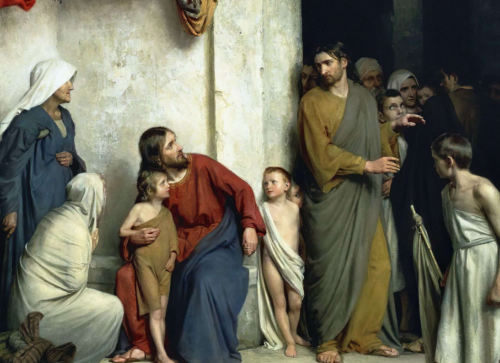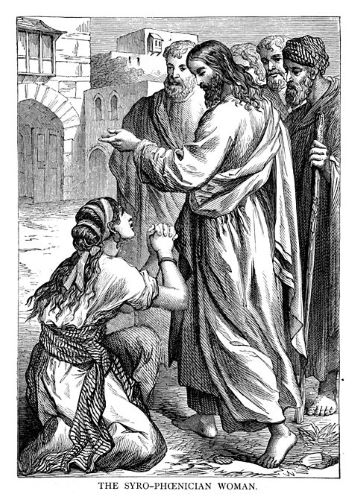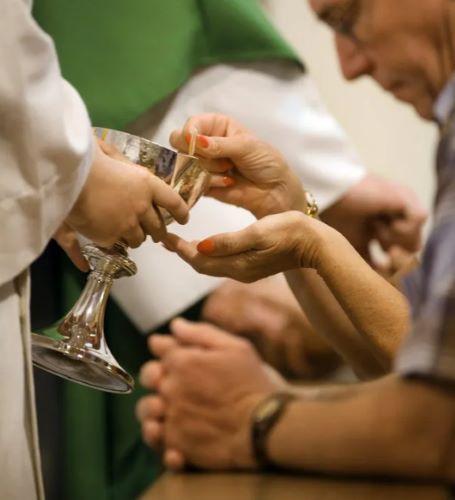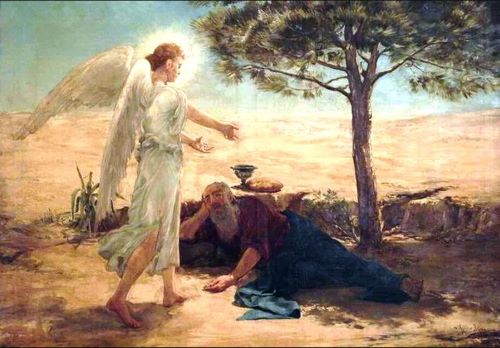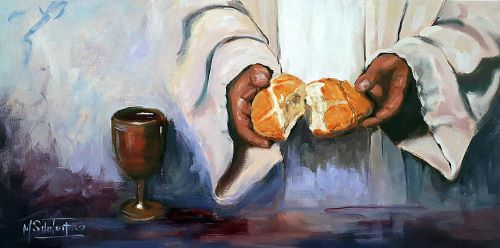How Can We Not Rejoice?
Year C
Joshua 5:9-12
Psalm 32
2 Corinthians 5:16-21
Luke 15:1-3, 11b-32
May the words of my mouth O God… speak your truth…
We’ve all heard this parable before… at least I think so… and depending on who’s preached on it… some of this may not be news… though as you’ll see… it all remains Good News… but I wonder how many of us know that this parable really doesn’t have a title… at least not one given by Luke… The Prodigal Son… or The Return of the Prodigal Son… is an add-on… though this story is also known as The Parable of the Two Brothers… of the Lost Son… of the Loving Father… and of the Forgiving Father…
And Daniel Esparza writes that Jesus’ audience would immediately recognize the opening words of the parable as they appear in Luke (15:11-32)… There was a man who had two sons… as belonging to a very specific tradition… the very same one to which the stories of Cain and Abel… Ishmael and Isaac… and Esau and Jacob belong… and they would also be familiar with the pattern we find in all three… that the younger brother is always the righteous one… Cain being a murderer… Ishmael being denied his inheritance by Sarah (Gen. 21:10-12)… and Esau willing to give up on his birthright for a bowl of lentil stew… however… as is often the case in Jesus’ speeches… there is an original twist in this one… here… the younger son is not the righteous Abel… the obedient Isaac… or the clever Jacob… in this case… the younger one is a “prodigal” son… and those listening to the parable… surely might not have seen that one coming… as it indicates an inversion of these classic biblical narratives…
And in Jesus’ audience… the tax collectors and sinners who were coming to listen to Jesus… were those who are outside of the law… and the Pharisees and scribes who grumbled… are those who are inside the law… and there is grumbling because Jesus is welcoming and accepting people whose behavior puts them outside the law… and in doing this… the Pharisees and scribes fear he is approving of them and sanctioning their behavior…
And this story is atypical in another way… by asking for his inheritance now… the younger son is effectively saying that he wished his father dead… but instead of responding with indignity or an offended honor… this atypical father simply divides his property equally… and gives half to each son… not to mention that according to Deuteronomy 21:17… the older son would get two-thirds of the father’s estate and the younger son only one-third…] the story says nothing about how the older son reacts… though later on… there’s a slight disconnect… because he claims that his father has never given him as much as a young goat… ] but it is because the younger son receives this inheritance that he is able to become prodigal… and I wonder how many of us know what prodigal means… [ may I have a show of hands… ]
I used to think it meant singular or special… but it actually means… to spend money or resources freely and recklessly… to be rashly or wastefully extravagant… and while the text is brief… he qualifies since it lets us know that he squandered his property in dissolute living…
John Shea writes that it’s doubtful whether Jesus ever ate with a sinner… or argued with a Pharisee or scribe… instead… he shared food with lost sons and daughters… and had conversations with other lost sons and daughters… and in today’s parable… the younger lost son represents the sinners and tax collectors… the older lost son represents the Pharisees and scribes… and although these two groups see themselves as diametrically opposed to one another… Jesus sees them as sharing a common malady… namely… the failure to rejoice…
We’re told that after the younger son has spent everything he had… there’s a severe famine… and so he hires himself out to feed ritually unclean pigs… and figuratively becomes one himself… wanting to eat the food they eat… a detail that would not be lost on Luke’s Jewish listeners… but for now… he’s a hired hand who’s eating nothing… perhaps he can be one of his father’s hired hands who eats well… so he prepares a script to get back into the House of Food… ] and he makes the first move… he repents… he turns and moves towards his home… towards his father… the humiliation of his sin and the fierceness of his need drive each step… and yet… this is all he needed to do… because his father has been keeping vigil… waiting… and watching… and he sees his son while he is still far off… and at this sight… Shea continues… the father’s heartfelt compassion covers the distance between them… before his body covers the ground between them… and in this moment… the father… who has also been prodigal… recklessly… rashly and wastefully… lavishes gifts… welcome… and forgiveness on his son… because he knows how to rejoice… his son who was lost has been found… who was dead has come back to life…
Now his older brother was in the field… he was a worker… perhaps fulfilling the works righteousness he believed necessary to maintain his father’s favor… as he approaches the house… he hears the unfamiliar sounds of music and celebration… and when he finds out what’s going on… he became angry… and refused to go in… when he sees his father lavishly bestowing forgiveness and grace on his brother… perhaps… because he himself was determining who is worthy of what…
Perhaps… as Presbyterian Minister Mihee Kim-Kort writes… he represents the established religious order… and his story becomes a moral lesson for us all to be wary of resentment… perhaps even indignation and jealousy… a subtle word directed at those grumblers around Jesus…
And his refusal to go in… to accept hospitality… is from the father’s point of view… an insult as well… the important thing is that they have always been together… and the father has never held anything back from him… even half of his estate… but the older son has imagined a demanding father who withholds love from the one who deserves it… while giving love to the one who he believes does not deserve it…
In Archbishop Desmond Tutu’s book… The Book of Forgiving… he wrote about reconciliation from the perspective of one who lived the struggle of trying to welcome back a whole country that was lost… he wrote… a person is a person through other persons… none of us comes into the world fully formed… we would not know how to think… or walk… or speak… or behave as human beings… unless we learned it from other human beings… we need other human beings in order to be human… I am… he wrote… because other people are…
We are living through an extended season of valleys being raised up… and mountains and hills being made low… we are finding our way through this rocky terrain individually… and collectively… we’re learning how to move from laws written into the civil code and into church polity… to laws written on our hearts… and corporations and religious institutions are trying to figure out how to fit the diversity of God’s creation… into expressions of fairness and justice… and into the vows we made or that were made on our behalf… at our baptisms… of treating others the way we would have them treat us… so that all injustice and ignorance would be burned away… and so we experience ourselves as… I AM WHO I AM BECOMING… today is Laetare Sunday… and laetare means… to rejoice… and we rejoice in the sacrament of Christ’s presence… in the forgiveness of sins… and in all other benefits of Christ’s passion… we rejoice because… God welcomes the least… the lost… the last… and the first… because God welcomes those who keep God’s law… as much as God welcomes those who do not… because God keeps constant vigil… waiting for us to turn ’round and take just the first step… to breathe the first breath which seeks God’s forgiveness… because in that moment… God’s heartfelt compassion and saving grace has already covered the distance between us… is already ours… and for all this… we rejoice…

